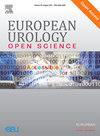A Cross-sectional Survey of Physicians to Understand Biomarker Testing and Treatment Patterns in Patients with Prostate Cancer in the USA, EU5, Japan, and China
IF 3.2
3区 医学
Q1 UROLOGY & NEPHROLOGY
引用次数: 0
Abstract
Background and objective
Treatment landscape in advanced prostate cancer (PC) is evolving. There is limited understanding of the factors influencing decision-making for genetic/genomic testing and the barriers to recommending testing and treatment in international real-world clinical practice following the approval of poly-adenosine diphosphate-ribose polymerase inhibitors (PARPi) for metastatic castration-resistant PC (mCRPC). This work aims to assess genetic/genomic testing patterns and methods, including for homologous recombination repair mutation (HRRm), and treatment decisions among physicians caring for patients with PC across the USA, Europe, and Asia.
Methods
A cross-sectional online survey of physicians treating patients with advanced PC was administered in the USA, France, Germany, Italy, Spain, UK, Japan, and China. Physicians were recruited (from August to December 2022) via clinical panels and provided informed consent. Survey questions covered factors influencing HRRm testing and treatment decision-making.
Key findings and limitations
Physicians reported that 50% of patients with mCRPC are recommended for HRRm testing, and among those recommended for testing, 60% are recommended for BRCA1/2 mutation testing and 65% go on to receive HRRm testing. Overall proportions of patients recommended for testing increased following PARPi approval (from 20% to 50%) and following updated practice guidelines (from 25% to 50%). Perceived barriers to the use of genetic/genomic testing included patient refusal, lack of insurance/reimbursement, and lack of availability of adequate tissue for testing.
Conclusions and clinical implications
Overall, testing rates increased following PARPi approval and updated clinical practice guidelines; yet, there was a wide variation in the proportions of patients with mCRPC recommended for testing, and perceived barriers to testing remain, suggesting unmet needs for patients and physicians.
Patient summary
We surveyed physicians globally about their experience in treating patients with advanced prostate cancer and genetic testing. Physicians reported that half of patients are recommended for genetic testing, which varied across countries. We conclude that barriers to testing remain for patients and physicians.
求助全文
约1分钟内获得全文
求助全文
来源期刊

European Urology Open Science
UROLOGY & NEPHROLOGY-
CiteScore
3.40
自引率
4.00%
发文量
1183
审稿时长
49 days
 求助内容:
求助内容: 应助结果提醒方式:
应助结果提醒方式:


